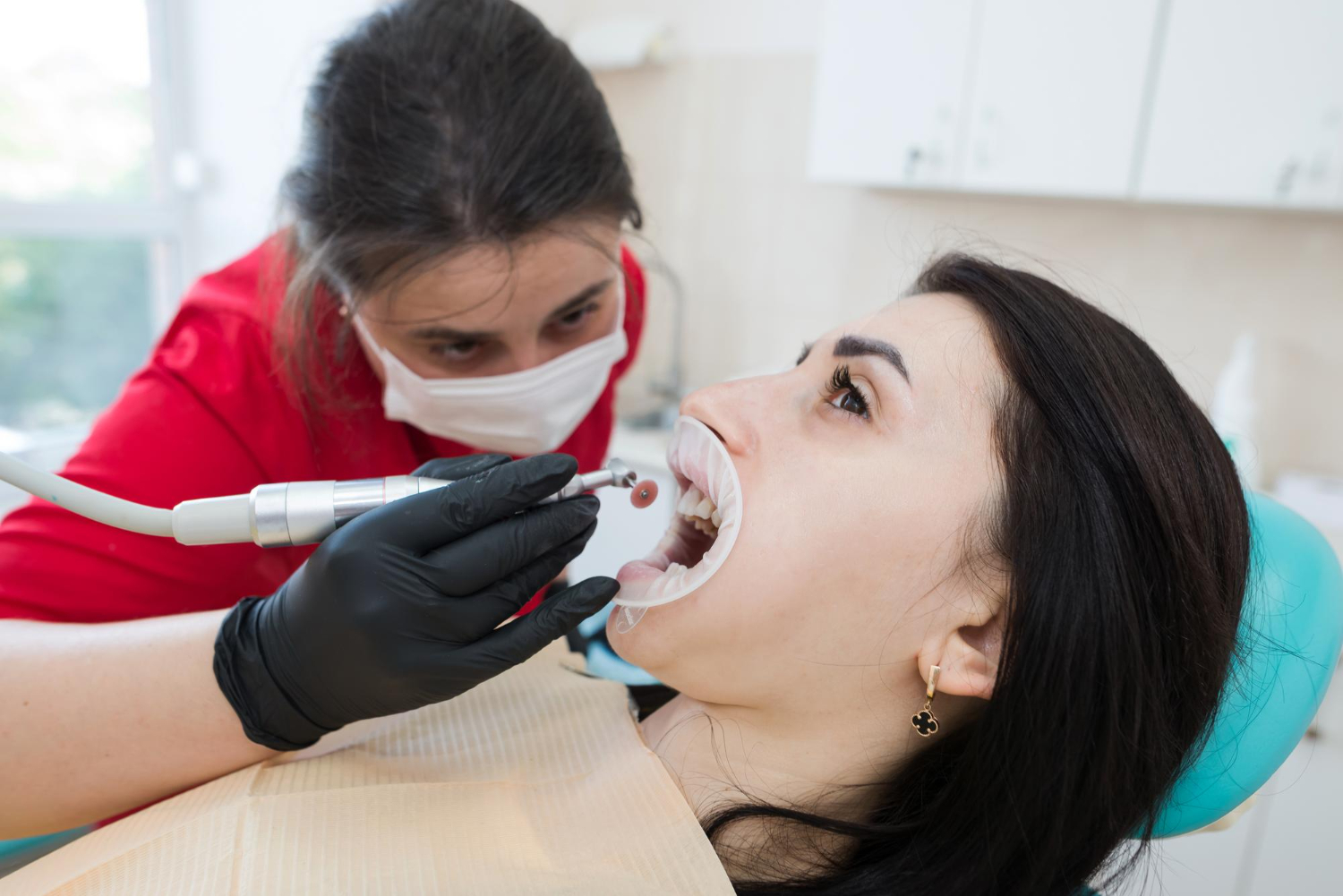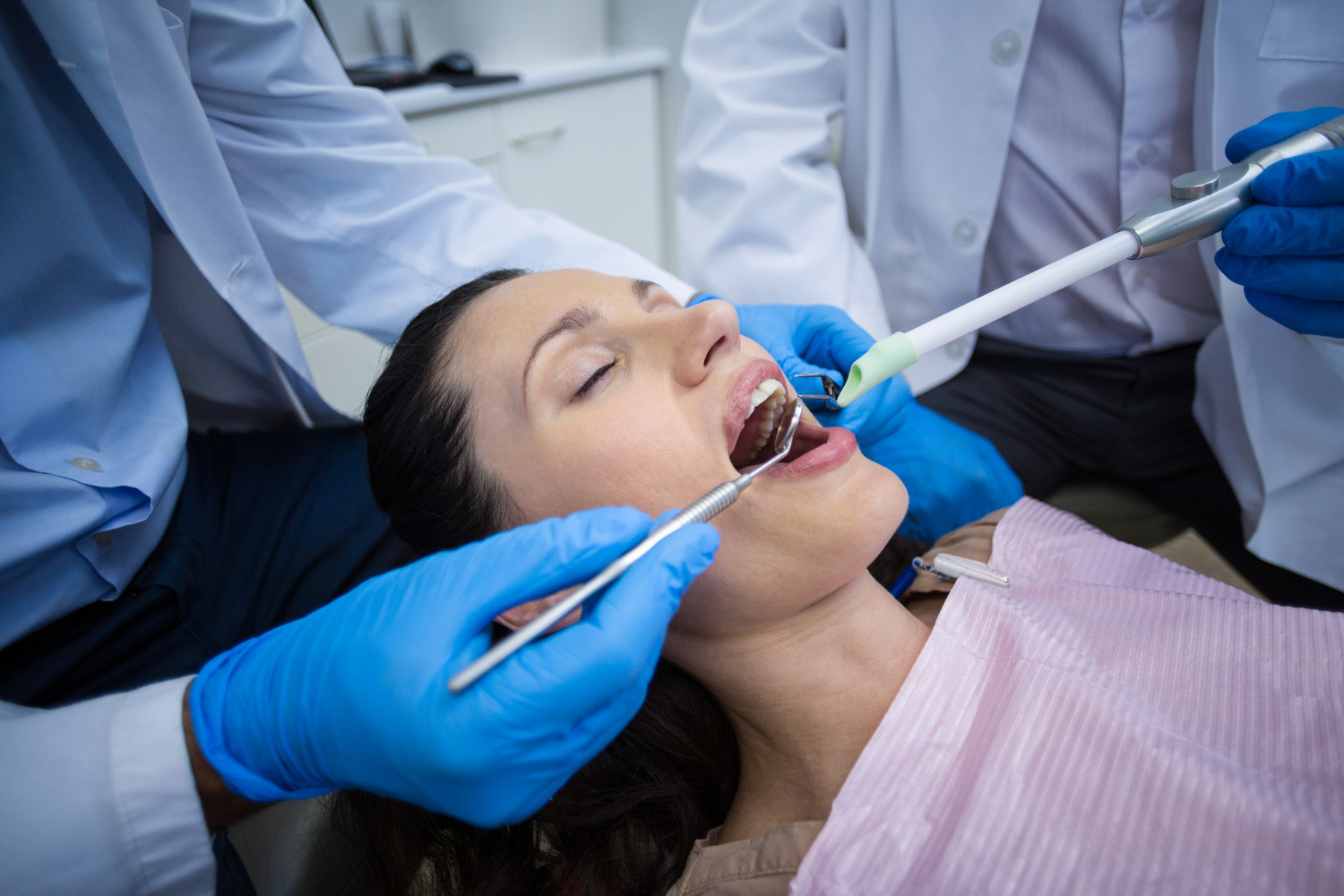Pregnancy is one of the most beautiful phases in a woman’s life — filled with excitement, anticipation, and countless changes. While most expecting mothers focus on prenatal checkups, diet, and rest, one crucial aspect is often overlooked: oral health.
Many women avoid visiting the dentist during pregnancy due to myths or fear that dental treatments might harm their baby. In reality, most dental treatments during pregnancy are safe, and maintaining good oral hygiene is crucial for both the mother and the child.
At Smiline Dental Hospital, we recognize that pregnancy requires extra care and caution, particularly when it comes to dental treatments. This guide will help you understand the safest dental treatments during pregnancy, when to schedule your appointments, and how to maintain the health of your teeth and gums throughout your journey to motherhood.
Why Dental Care Matters During Pregnancy
Hormonal changes during pregnancy can make your gums more sensitive, leading to issues such as bleeding, swelling, or infection. Neglecting dental health not only affects your comfort but can also influence your overall health and pregnancy outcomes.
Common Oral Health Issues During Pregnancy
- Pregnancy Gingivitis: Increased hormone levels can cause gums to swell, bleed, and become tender.
- Tooth Decay: Cravings and frequent snacking can lead to cavities if oral hygiene is not maintained.
- Pregnancy Tumours: Small, non-cancerous growths on the gums (pyogenic granulomas) that often go away after delivery.
- Morning Sickness Effects: Frequent vomiting can expose teeth to stomach acids, weakening the enamel
Caring for your teeth during pregnancy is not just about aesthetics — it’s about keeping you and your baby healthy.
Is It Safe to Visit the Dentist During Pregnancy?
Yes! Visiting the dentist is absolutely safe during pregnancy, especially if you inform your dentist about your pregnancy and any medications you are taking.
In fact, both the American Dental Association (ADA) and the American College of Obstetricians and Gynaecologists (ACOG) recommend routine dental checkups during pregnancy.
Best Time for Dental Treatment
- Second Trimester (13–27 weeks): This is the safest and most comfortable time to undergo dental treatments.
- First Trimester: Dental exams and cleanings are safe, but elective procedures are usually postponed.
- Third Trimester: Routine care is fine, but lengthy procedures may be uncomfortable due to lying on your back.
Your dentist will always prioritize your comfort and safety when recommending any procedure.
Safe Dental Treatments During Pregnancy
Let’s look at which dental treatments are considered safe and beneficial for expectant mothers.
1. Dental Checkups and Cleanings
Routine dental cleanings and exams are entirely safe and even encouraged during pregnancy.
Regular cleanings help remove plaque, prevent gum infections, and reduce the risk of pregnancy gingivitis.
Why it matters:
Hormonal changes increase blood flow to your gums, making them more prone to inflammation. Professional cleaning helps prevent severe gum disease, which can affect your overall health.
At Smiline Dental Hospital, our dentists employ gentle cleaning methods to ensure your comfort while maintaining optimal oral health.
2. Cavity Fillings and Restorations
If you have a cavity, it’s best not to wait until after childbirth. Tooth decay can worsen over time, leading to infection or pain.
Getting a filling during pregnancy is safe — especially during the second Trimester — when discomfort and risks are minimal.
Local anaesthesia is also safe in moderate amounts. Your dentist will carefully monitor dosage and avoid unnecessary medications.
Tip: Always inform your dentist that you are pregnant before starting any treatment.
3. Scaling and Gum Treatments
Scaling and root planing (deep cleaning) are safe and highly beneficial for pregnant women with gum problems. Untreated gum disease (periodontitis) has been linked to preterm birth and low birth weight.
By addressing gum issues early, you can protect both your oral health and your baby’s well-being.
At Smiline Dental Hospital, we utilize the latest ultrasonic technology to gently and effectively clean your gums with minimal discomfort.
4. Emergency Dental Procedures
Sometimes, dental emergencies can’t wait — such as severe toothaches, abscesses, or infections. In such cases, your dentist may recommend treatments like root canal therapy or tooth extraction.
These procedures are generally safe during pregnancy when done under proper supervision and with approved anaesthesia.
Delaying treatment for painful or infected teeth can cause more harm than getting them treated promptly.
5. Dental X-Rays (When Necessary)
While routine X-rays are usually postponed, they can be performed safely during pregnancy if necessary, such as in emergencies.
Modern digital X-rays emit very low radiation and are taken with a lead apron and thyroid collar to shield your abdomen and thyroid from exposure.
Rest assured: At Smiline Dental Hospital, we follow strict safety protocols to ensure minimal radiation exposure and maximum protection for expecting mothers.
Dental Treatments to Postpone Until After Delivery
Some elective or cosmetic procedures are best postponed until after childbirth to avoid unnecessary exposure or discomfort. These include:
- Teeth whitening
- Veneers or crowns for cosmetic purposes
- Orthodontic treatments (braces or aligners)
These can safely wait until you’ve delivered and are ready for longer dental sessions.
Anaesthesia and Medications During Pregnancy
Most local anaesthetics (like lidocaine) are safe for pregnant women when used in small amounts. Your dentist will:
- Use the lowest effective dose
- Avoid certain medications like tetracycline antibiotics or NSAIDs (such as ibuprofen)
- Coordinate with your gynaecologist if needed
At Smiline Dental Hospital, patient safety is our top priority. We ensure that all medications and anaesthetics used are pregnancy-safe and carefully monitored.
Home Dental Care Tips During Pregnancy
In addition to professional treatments, here are simple steps you can take at home to maintain good oral health:
1. Brush Twice a Day
Use a soft-bristled toothbrush and fluoride toothpaste to clean your teeth and gums gently.
2. Floss Daily
Hormonal changes can cause gum bleeding, but gentle daily flossing removes plaque between teeth and prevents inflammation.
3. Rinse with Mouthwash
Use an alcohol-free, antibacterial mouthwash to reduce bacteria and prevent bad breath.
4. Manage Morning Sickness
If you experience vomiting, rinse your mouth with water mixed with a teaspoon of baking soda to neutralize acids and protect your enamel.
5. Eat a Balanced Diet
Include calcium, vitamin D, and phosphorus-rich foods like milk, cheese, leafy greens, and nuts. Limit sugary snacks to avoid cavities.
6. Stay Hydrated
Drink plenty of water to help wash away food particles and maintain saliva flow, which in turn helps protect your teeth from decay.
Benefits of Maintaining Oral Health During Pregnancy
Maintaining your oral health benefits both you and your baby.
Here’s how:
- Prevents gum disease and tooth decay
- Reduces the risk of preterm birth and low birth weight
- Helps maintain better overall health
- Improves confidence and comfort
- Lays the foundation for lifelong dental health
Healthy gums and teeth during pregnancy contribute to a smoother pregnancy and a happier, healthier mom.
What Happens if Dental Problems Are Ignored During Pregnancy?
Neglecting oral care during pregnancy can lead to:
- Infections: Untreated decay or abscesses can spread to other areas of the mouth.
- Pain and inflammation: Making eating and sleeping difficult.
- Pregnancy complications: Studies link poor oral health to premature births and low birth weight.
That’s why it’s essential not to delay your dental visits — prevention and early treatment make all the difference.
Conclusion
Pregnancy is a precious time, and your health, including oral health, deserves special attention. Most dental treatments during pregnancy are safe, beneficial, and necessary for your well-being.
At Smiline Dental Hospital, we specialize in providing gentle, pregnancy-safe dental care designed to keep you comfortable and confident throughout all stages of motherhood.
If you’re an expecting mother looking for safe dental treatments in Hyderabad, visit Smiline Dental Hospital today. Our experienced team will ensure your smile stays healthy — for you and your baby.
FAQs About Dental Care During Pregnancy
1. Can I get dental treatment while pregnant?
Yes! Routine cleanings, fillings, and even some emergency treatments are completely safe during pregnancy when performed by a qualified dentist.
2. What dental procedures are unsafe during pregnancy?
Cosmetic procedures, such as whitening and veneers, should be postponed until after delivery. Always consult your dentist before any treatment.
3. Is dental anaesthesia safe during pregnancy?
Yes, local anaesthesia in controlled amounts is safe. Your dentist will use pregnancy-safe options and avoid medications that could pose risks.
4. Can dental X-rays harm my baby?
No. Modern digital X-rays utilize minimal radiation and incorporate protective gear, such as lead aprons, for complete safety.
5. What should I do if I have a toothache during pregnancy?
Don’t ignore it. Contact your dentist immediately — treating infections early prevents complications for both you and your baby.

